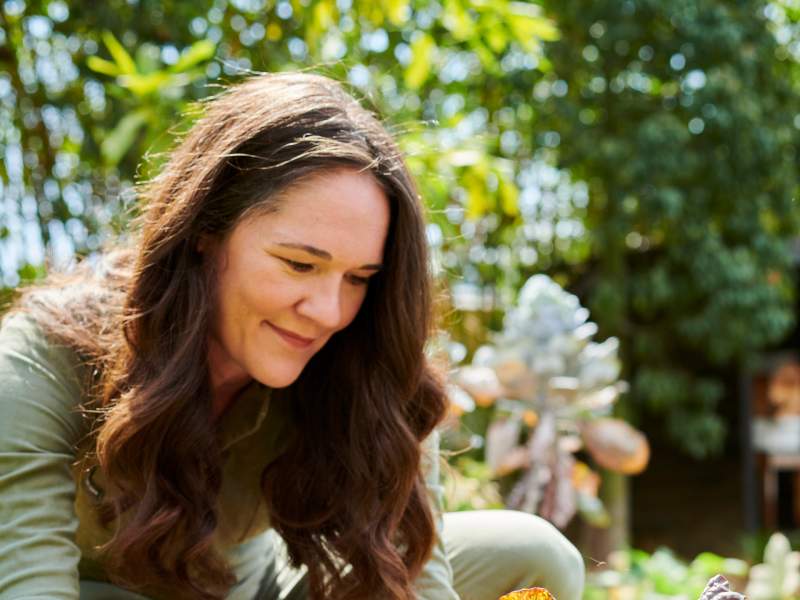Compost at Home
We’re sharing advice from our in-house experts on how to effectively compost at home in a few easy steps.

Compost is a mix of organic materials that gets added to soil to help plants grow. We at 1 Hotels are always focused on protecting our planet, and we have remained dedicated to composting at all our hotels. In addition to enriching our soil, suppressing plant disease, reducing the need for chemical fertilizers, and encouraging the production of beneficial bacteria and fungi, composting reduces methane emissions and ultimately lowers our collective carbon footprint. Here, we’re sharing advice from our in-house experts on how to effectively compost at home in a few easy steps.
Greens & Browns, Then Add Water
The easiest way to remember what to include in your compost? Think browns (branches, twigs), greens (grass clippings, vegetable waste, fruit scraps), and water. The brown provides carbon, the green nitrogen, and the water ensures the moisture of the compost.
• Fruits and vegetables
• Eggshells
• Coffee grounds and filters
• Tea and tea bags
• Nut shells
• Shredded newspaper, cardboard, and paper
• Grass clippings and yard trimmings (not treated with chemical pesticides)
• Houseplants and leaves (from healthy plants)
• Hay and straw
• Sawdust and wood chips (from untreated, natural woods only)
• Cotton and wool rags
• Dryer and vacuum cleaner lint
• Hair and fur
• Fireplace ashes
What Not to Compost
Knowing what not to compost is as important as knowing the basics of what to compost. Avoid meat, bone, and fish scraps, dairy products, eggs, fats, grease, lard, and oils (they attract pests); diseased plants (you could spread the diseases); yard trimmings treated with chemical pesticides (which might kill necessary composting organisms); banana peels, peach peels, and orange rinds (they may contain pesticide residue); black walnut leaves and twigs and coal and charcoal ash (these may be harmful to plants); and pet waste and sawdust from chemically treated woods (these may be harmful to humans).
Compost at Home in 7 Easy Steps
1. Choose Your Bin: Your compost bin can be made from almost anything, but yard bags work quite well. Otherwise, you can find a compost bin at most gardening stores.
2. Start the compost pile on bare earth, which allows worms and other good organisms to aerate it.
3. Lay down twigs or straw a few inches deep.
4. Add compost in layers, alternating moist (food scraps, tea bags, seaweed) and dry (straw, leaves, sawdust) elements.
5. Add manure, grass clippings, clover, or any natural source of nitrogen.
6. Water your compost pile occasionally to keep it moist; rain will do most of the work.
7. Cover your compost pile with just about anything (wood, carpet scraps) to retain moisture and protect it from getting too wet during rainstorms.
8. Turn your compost with a shovel every few weeks to aerate it, essentially “adding” oxygen, which is required for the process to work. Once you’ve created your compost pile, you can introduce new materials by mixing them into your pile instead of layering them, further oxygenating your compost.












